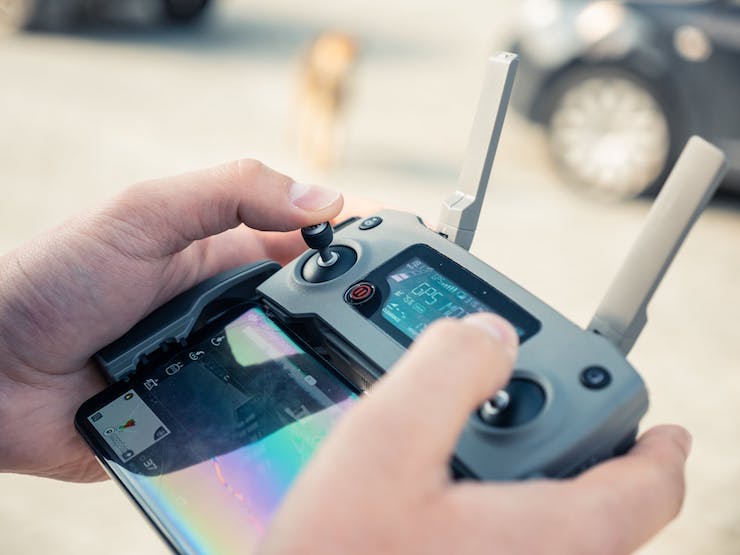University Students Receive Grant to Work on Increasing Battery Capacity and Flight Time

For private and government research agencies throughout the world, drones have become a vital tool of the trade. They are able to collect data in a way that is far superior to any previous methods. They save time, are cost efficient, easy to use, and provide unparalleled data. As researchers begin to rely more and more on drones, what was once granting them access to areas they thought improbable to study, is now showing that even drones have their limits. The main limitation that any drone operator will say they find to be an issue is the short battery life span that drones come with.
In general, a drone’s battery will allow it to fly between 20-40 minutes before needing to be recharged or swapped out for a new battery.
Some drones are now boasting a flight time of 1 hour, but these are a bit pricey. There are long range drones that can fly for several hours, but these are mainly used for military purposes and are way out of budget for any research teams. The problem is that to have a longer flight time you need a larger, heavier battery. This in turn means you need to build a larger drone to support the weight of the battery. The nature of an agile, flying, unmanned vehicle is to be lightweight and aerodynamic so a large battery source is not an option. For the most part this hasn’t restricted the booming success of drones. Operators simply keep spare batteries on them if needed. But when sending a drone out to gather data in remote regions, being able to call the drone back in to swap batteries is also not an option.
One of the top 100 universities in the world, Southampton University in Southern England, has just received a major grant from a former student to tackle this issue. Dr. Ewan Kirk earned his PhD in General Relativity and Mathematics from Southampton University and has gone on to be one of England’s most successful entrepreneurs. He has continued to work in the fields of science and technology, founding an investment firm dedicated to helping clients invest in the future of technologies. In 2007 Dr. Kirk and his wife Dr. Patricia Turner set up the Turner-Kirk charitable fund to support STEM programs in the UK. Since then, they have gone on to make several charitable donations in support of the sciences. The most recent of these is the £15,000 Turner-Kirk UAV Research Support Programme for 4th year students in the engineering department at Southampton University.
For an undergraduate program this is a huge opportunity, an opportunity that would normally be allocated for graduate students. But Dr. Kirk is confident that these students will be able to use the grant to come up with ideas to improve drone flight times. Of the reason why they chose to set up this program, Dr. Kirk said, “In the future, it is totally possible that remote and hostile environments worldwide will be constantly monitored by UAVs, feeding back live data to environmental agencies, so we can track our global ecosystem in real-time. The application of technology is vital to mitigating environmental changes and the conservation of endangered animals. Universities are hotbeds for ideas and innovation and have an important role to play in developing the technology needed.”
In particular, the students will be researching ways to improve the efficiency and extend the battery life of existing drones on the market. They will also research new drone and battery designs that will be able to use minimal energy sources. Senior Enterprise Fellow from the engineering department at the University of Southampton, Dr Mario Ferraro, is extremely grateful for the opportunity this grant will have for his students. He said, “As a team, one of the University’s main priorities is to develop technology that can be used by environment agencies worldwide to make a real difference in minimizing the impact of climate change and natural disasters. Until now, there’s simply not been enough research in this area, and as we all feel the effects of climate change, from widespread flooding to forest fires, the importance of this type of technology matters more than ever.”
When drones are no longer held back by the limitations of their batteries, researchers will be able to send them out to gather data in uncharted areas. A part of this program will include a field trip to Guatemala in collaboration with the University of Bristol later in 2020. On this trip, the students will test existing drones with improved batteries as well as their new designs to monitor a live volcano. Dr. Turner went on to say, “Conservation and environmental degradation is one of the most important and urgent challenges that we face. It is critically important that universities and researchers have the funds at their disposal to find new, creative technology solutions to these urgent problems. I am particularly excited about this research because of the way it engages younger undergraduate students. If we are to realize the potential of drones, it is essential to engage the next generation of research talent in UAV research.”
|